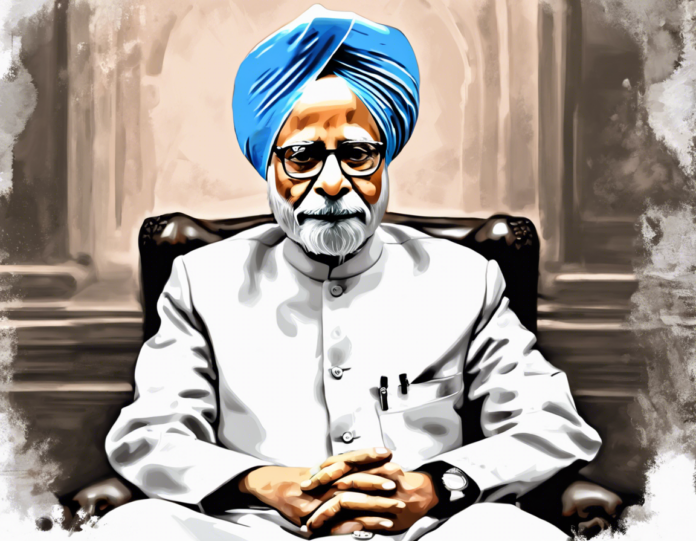Former Prime Minister of India, Dr. Manmohan Singh, recently announced his retirement from the Rajya Sabha, the upper house of India’s Parliament, after serving as a member for almost three decades. Dr. Singh, an eminent economist and politician, is known for his pivotal role in liberalizing India’s economy and his tenure as Prime Minister from 2004 to 2014. His retirement marks the end of an era in Indian politics, sparking reflections on his contributions and legacy.
Dr. Manmohan Singh’s Political Journey
Born in 1932 in Pakistan (then undivided India), Dr. Manmohan Singh rose to prominence as an economist, holding various key positions in academia and government. His political career took off when he was appointed as the Finance Minister of India in 1991 under the leadership of then-Prime Minister P.V. Narasimha Rao. As Finance Minister, Dr. Singh played a pivotal role in ushering in economic reforms that liberalized the Indian economy, paving the way for rapid growth and globalization.
In 2004, Dr. Manmohan Singh became the first Sikh Prime Minister of India, leading the United Progressive Alliance (UPA) government to two consecutive terms in office. During his tenure, he focused on inclusive growth, social welfare programs, and strengthening India’s position on the global stage. His government’s flagship programs, such as the Mahatma Gandhi National Rural Employment Guarantee Act (MGNREGA) and the Right to Information Act, aimed to empower marginalized sections of society and promote transparency in governance.
Contributions to Indian Economy
Dr. Manmohan Singh’s background as an economist greatly influenced his policy decisions during his tenure as Prime Minister. His government’s focus on economic reforms, infrastructure development, and social welfare programs contributed to India’s emergence as a global economic powerhouse. Under his leadership, India witnessed significant GDP growth, increased foreign direct investments, and advancements in various sectors.
One of Dr. Singh’s most significant contributions was the Indo-US civil nuclear deal, which aimed to boost India’s nuclear energy capabilities and enhance strategic ties with the United States. This deal, signed in 2005, marked a significant shift in India’s foreign policy and paved the way for greater cooperation in defense, technology, and trade.
Legacy in Indian Politics
Dr. Manmohan Singh’s tenure as Prime Minister was marked by both accolades and criticism. While his economic reforms and focus on social welfare programs were widely praised, his government also faced challenges such as corruption scandals and policy paralysis. Despite these setbacks, Dr. Singh’s dignified demeanor, integrity, and commitment to public service earned him respect from across the political spectrum.
As he bids farewell to the Rajya Sabha, Dr. Manmohan Singh leaves behind a legacy of leadership, statesmanship, and economic acumen. His contributions to Indian politics and policymaking continue to inspire a new generation of leaders to prioritize inclusive growth, good governance, and diplomacy on the global stage.
FAQs
- What were some of Dr. Manmohan Singh’s key achievements as Prime Minister?
-
Dr. Singh’s key achievements include economic reforms, social welfare programs, and the Indo-US civil nuclear deal.
-
How did Dr. Singh’s background as an economist shape his policies as Prime Minister?
-
Dr. Singh’s expertise in economics influenced his focus on liberalizing the Indian economy, attracting investments, and promoting growth.
-
What challenges did Dr. Singh’s government face during his tenure as Prime Minister?
-
Dr. Singh’s government faced challenges such as corruption scandals, policy paralysis, and criticism over its handling of certain issues.
-
What is Dr. Manmohan Singh’s legacy in Indian politics?
-
Dr. Singh is remembered for his integrity, economic reforms, and commitment to inclusive growth, leaving a lasting impact on Indian politics.
-
What impact did the Indo-US civil nuclear deal have on India’s foreign policy?
- The Indo-US civil nuclear deal marked a significant shift in India’s foreign policy, strengthening ties with the US and opening avenues for cooperation in various sectors.
In conclusion, Dr. Manmohan Singh’s retirement from the Rajya Sabha symbolizes the end of an era in Indian politics, but his legacy as a visionary leader and reformer continues to shape the country’s trajectory. As India moves forward, Dr. Singh’s contributions serve as a guiding light for future generations of policymakers and public servants striving to build a prosperous and inclusive nation.






